Would you like to naturally upgrade your T-levels? If so, here are 10 testosterone-boosting foods to help in the fight for epic gains and optimal hormone levels.
Testosterone is a key hormone for both men and women, but studies have shown that our levels of testosterone are decreasing at an alarming rate, especially in men. This is bad because testosterone is vital for many biological functions.
T-Levels also help to keep you motivated with life, your goals, and your mission. Even sex drive becomes diminished and sperm count begins to plummet if you have low testosterone in your body.
It’s in your best interest to add T-promoting foods to your diet, as they may help to get you back to a healthier level and help you feel like you’re ready to tackle the world.
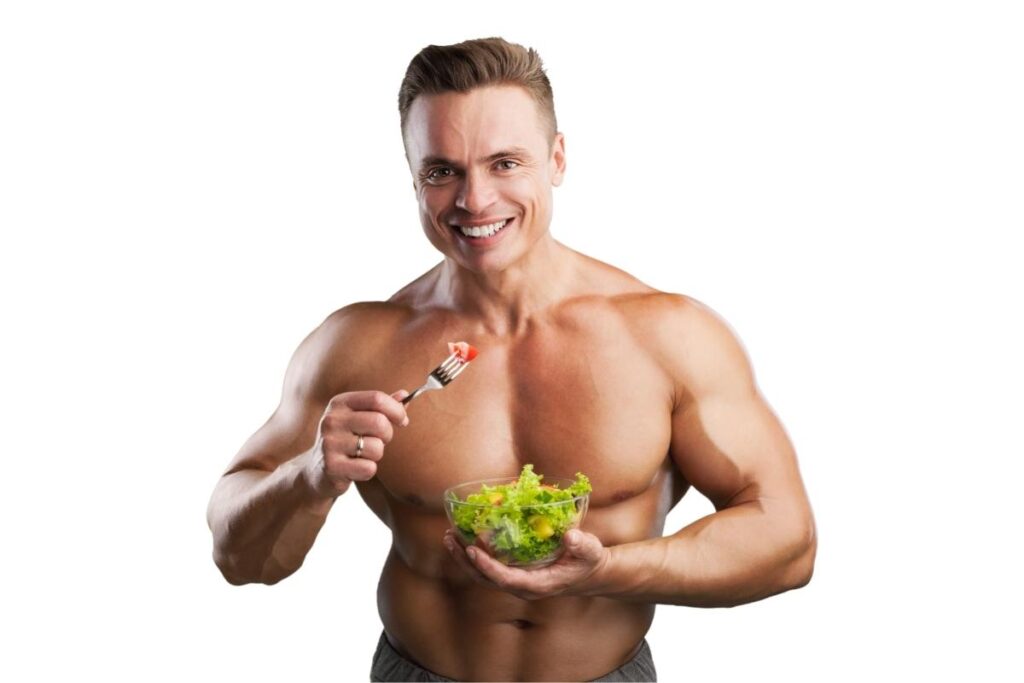
Even if you want to maintain a healthy level of testosterone, follow our list below and never worry about plummeting T-levels.
1. Garlic
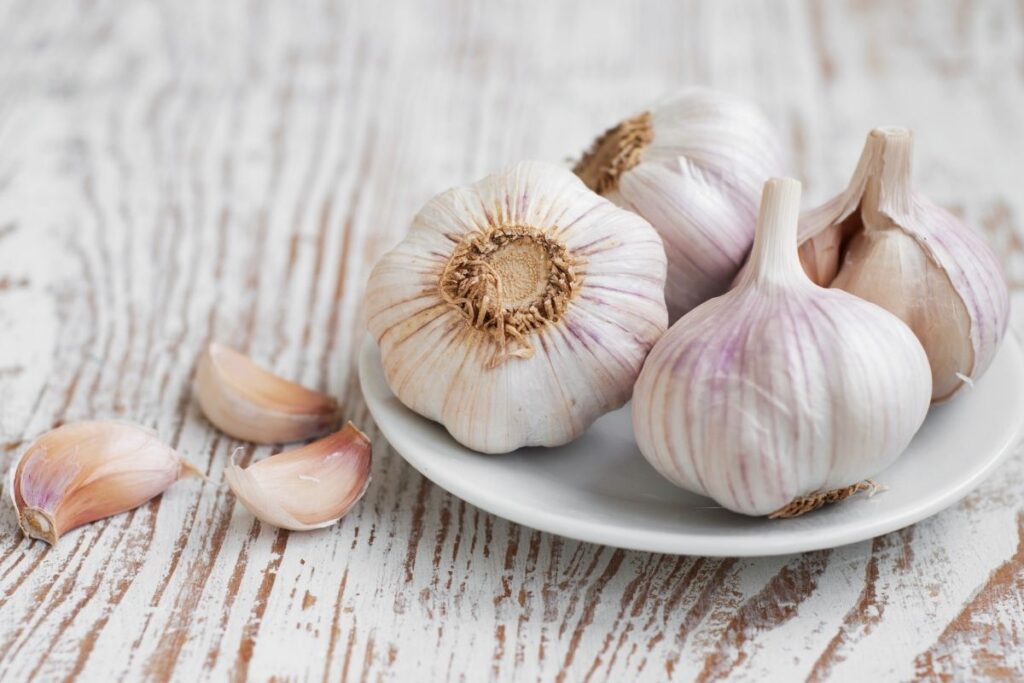

Garlic contains a compound called allicin, which can be beneficial for lowering cortisol levels.
Cortisol is known as the stress hormone, which is released from the adrenal glands when your body is under stress. This can have an impact on the production of your body’s ability to produce testosterone.
By reducing cortisol levels, you don’t necessarily increase testosterone levels, but aid in its total production instead.
Try and aim for 1-2 garlic cloves per day to help increase your daily intake.
You can add these to several dishes, and they are most commonly found in Asian cuisines such as Thai, Indian and Chinese, but also European dishes such as spaghetti bolognese and even pizza.
2. Seafood


Including seafood in your diet should be one of your top priorities from a dietary perspective, as most of us don’t eat enough seafood, if at all.
You can consume canned or fresh types of fish such as tuna or choose more oily sources of fish, such as salmon, oysters, and mackerel.
The more oily the fish, the higher the content of omega-3 fatty acids, which have their health benefits including improvements to heart health and cognitive function.
Having fish 2-3 times per week is a good choice. Even if it is canned or locally farmed, this is better than having nothing at all.
Outside of fish consumption, purchasing a high-quality omega 3 supplement can help to fill in the gaps when you are not consuming fish.
We recommend you aim for 1-2 grams of EPA and DHA combined per day (check the label for quantities.)
3. Leafy Greens
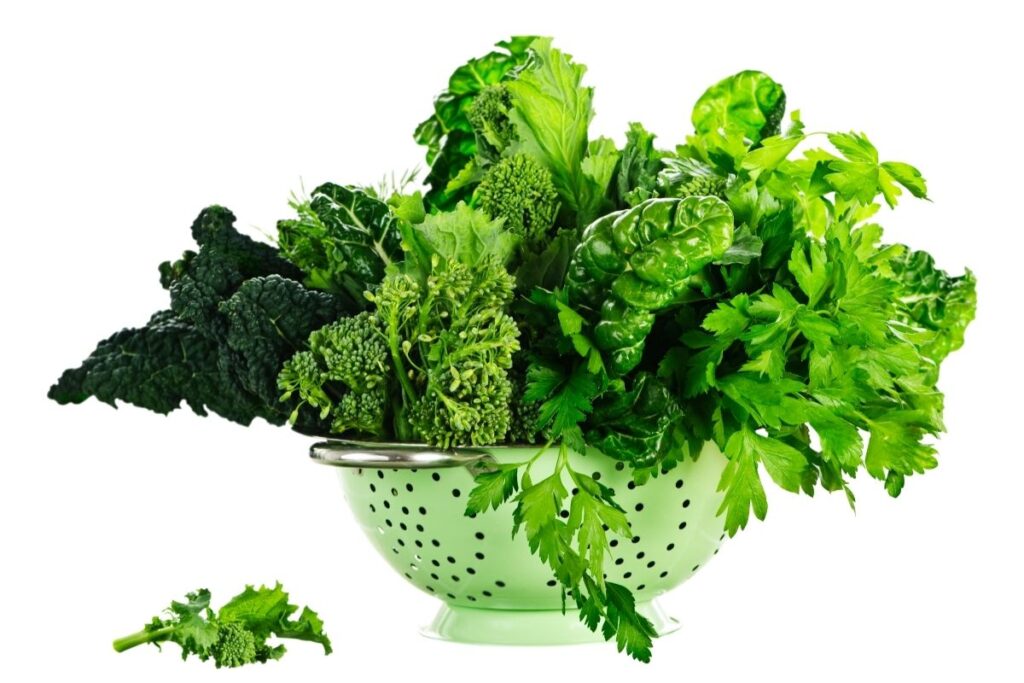

Dark leafy greens should be a staple in everyone’s diet, regardless of whether you want to increase your T-levels or not. They are an excellent source of micronutrients such as magnesium, calcium, and potassium.
Magnesium, in particular, has been shown to increase testosterone bioactivity as it helps to reduce oxidative stress which is when there is an imbalance of free radicals to antioxidants present in the body.
The best sources of leafy greens are kale, spinach, collard greens, and cabbage, and a daily dose of some of these are going to be a great choice for your diet long-term.
If you’re not a fan of your veggies, the next best solution is to have them in a smoothie form so they can be hidden with other flavors.
4. Milk
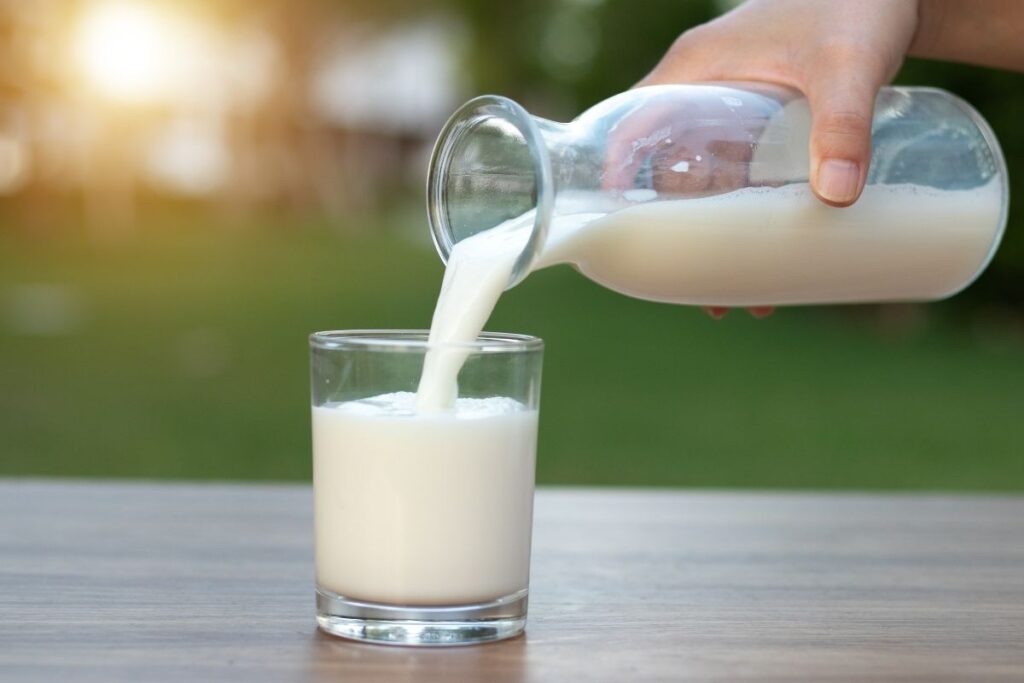

Milk is a great source of protein and calcium, but finding milk that is fortified with vitamin D can be even better for those looking to improve testosterone levels. This is because vitamin D has been shown to aid testosterone production, as well as being linked to a longer life.
In terms of the type of milk to choose, the evidence points to skimmed or semi-skimmed milk being superior due to its lower saturated fat intake.
However, the evidence is not clear on whether saturated fat is necessarily bad for you, or whether other types of fat such as polyunsaturated or monounsaturated are better for you. Therefore, go with the milk you enjoy the most.
5. Eggs


Eggs are another fantastic source of protein and egg yolk, in particular, contains a lot of healthy nutrition such as vitamin D, omega-3 fatty acids, and folate. These aid in the production of testosterone, and are a popular food for lifters.
Eggs can be consumed in a multitude of ways; from pancakes to pizzas, poached or fried for breakfast.
As long as you do not have any pre-existing cholesterol issues, 1-3 eggs per day is a healthy amount, and make sure you do not remove the egg yolk as this is where most of the protein and nutrition is found.
6. Almonds
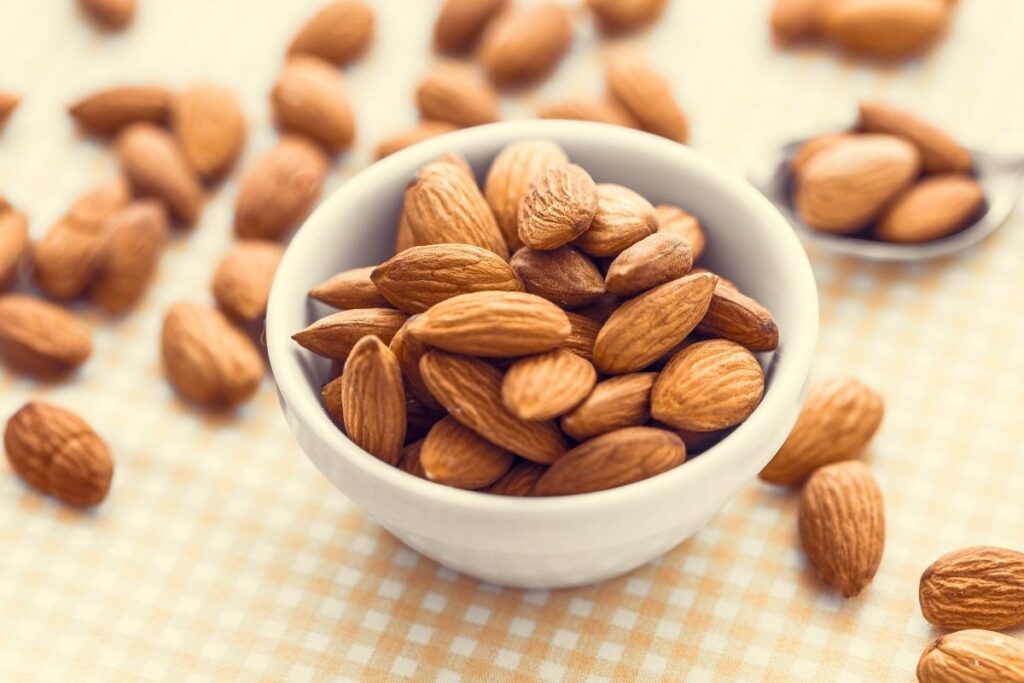

Almonds contain a naturally high level of zinc, which has been shown to increase testosterone levels in people who are zinc deficient. This is because the pituitary gland is prevented from releasing key hormones that are vital to the testosterone production process.
Increasing total zinc levels through your diet will alleviate this issue and help to keep testosterone production higher.
A handful of nuts per day can help to increase total zinc levels. Trail mixes and mixed nut options can be a great snack to keep on your desk at work, or in the car on the go.
You may also want to experiment with nut butter such as almond butter or cashew butter, as these can go well with a protein shake.
7. Cocoa Products
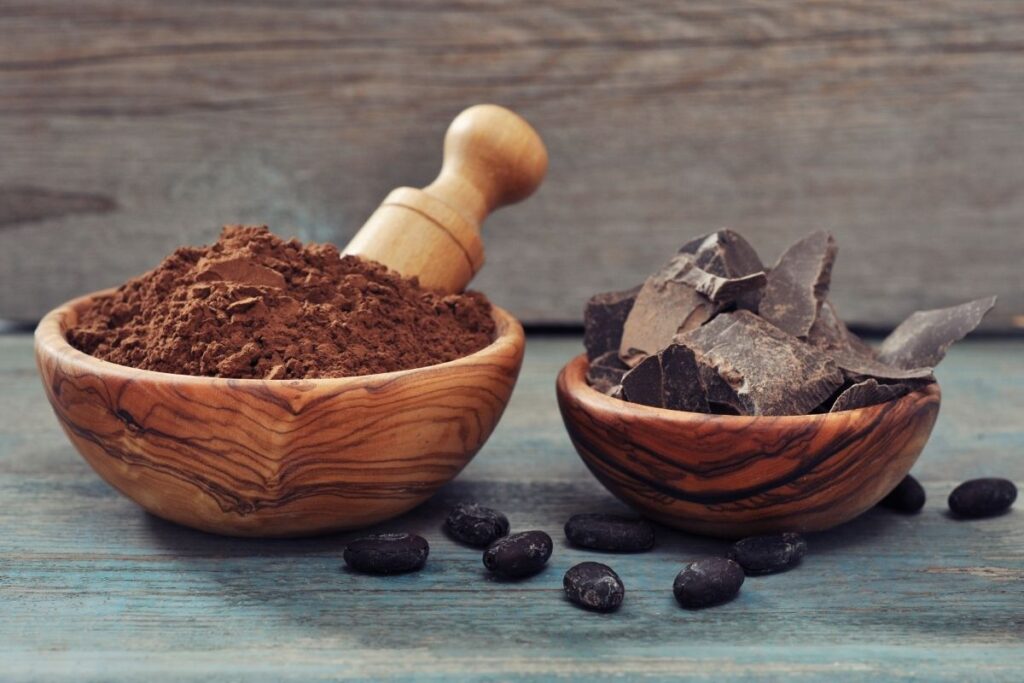

Other food types that are becoming more popular in the fitness world are cocoa products, specifically cocoa powders and cocoa nibs. These are high in magnesium and antioxidants, which are both important compounds for total testosterone levels in the body.
They also contain flavonoids, which some studies have suggested help increase testosterone from cells in the testicles, known as Leydig cells.
When you are looking for cocoa products, choose an option that is sugar-free or contains small amounts of added sugar.
Cacao powder is a great addition to chocolate-flavored protein drinks, whilst cocoa nibs go great as a porridge oatmeal topping. Speaking of oatmeal…
8. Porridge Oats
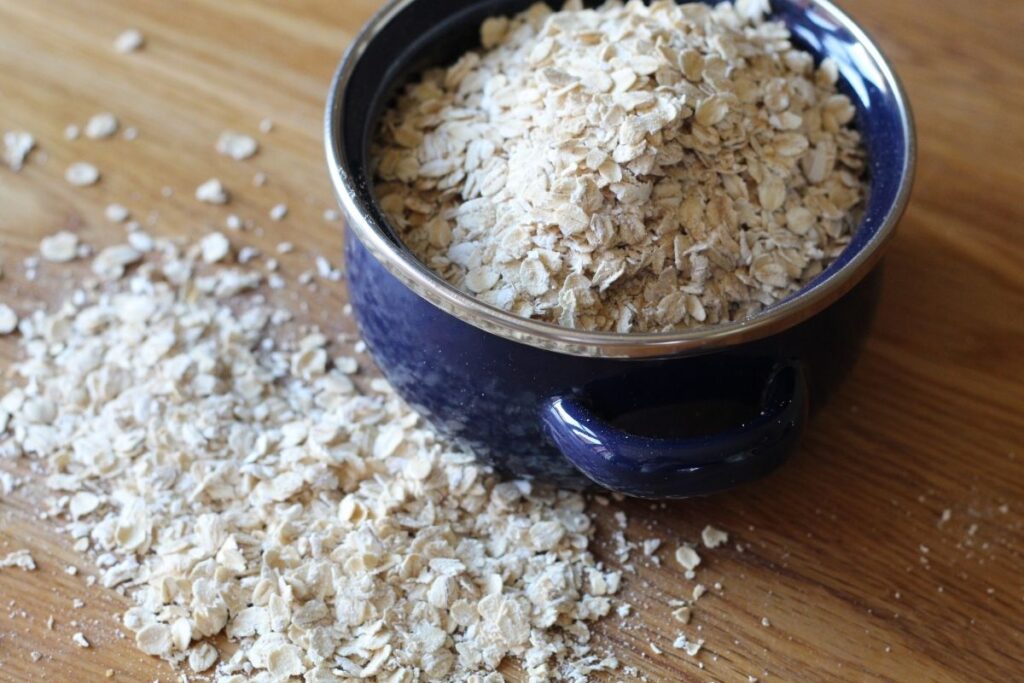

Porridge oats contain a decent amount of vitamin B which are great for energy production, but also super for testosterone production.
In particular, vitamin B6 helps to suppress the overproduction of estrogen, which can drop total testosterone levels if there is too much estrogen in your body.
Porridge oats are a breakfast staple and could be rotated along with eggs for a healthy breakfast meal plan.
You can also add other testosterone-boosting foods to oats, such as milk, cocoa nibs, almonds, and even eggs which can be stirred in before cooking.
9. Berries And Other Various Fruits
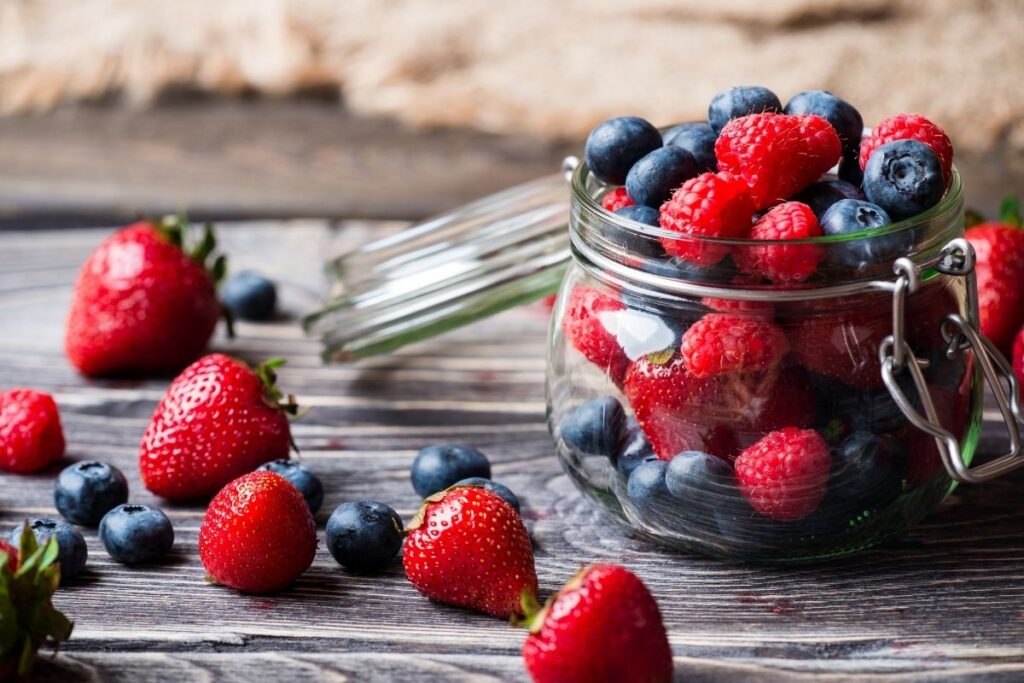

Fruit, especially berries, cherries, and pomegranate seeds contain a high level of antioxidants which can help protect testosterone-producing cells from down-regulation.
They also help to protect against inflammation onset by obesity and remain a solid dietary choice for weight loss which also improves testosterone levels.
Having 1-2 pieces of fruit per day is a great option, and doesn’t take a lot of effort. They can easily be consumed as part of a healthy meal like porridge oats, or consumed on their own as either a snack or a replacement dessert for high-sugar processed foods.
10. Beef
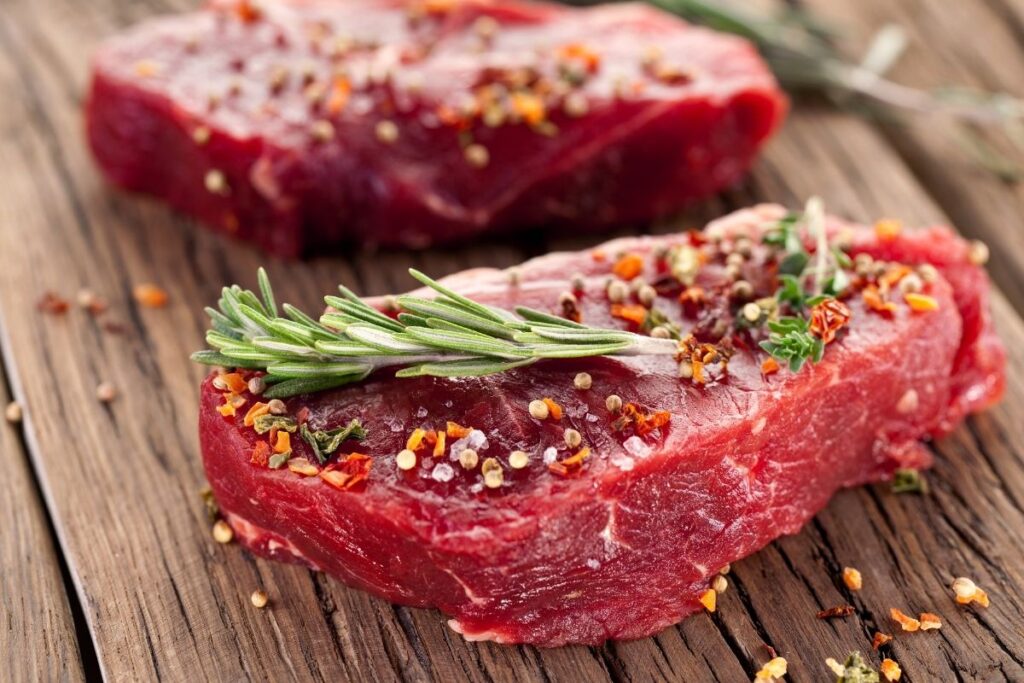

Whilst there is debate over the consumption of red meat due to possible health concerns, many cuts of beef have testosterone-boosting qualities as they contain zinc and vitamin D, a well as a good amount of vitamin B which is vital for energy production. Therefore a thoughtful red meat intake would be a viable option for most people.
Consider consuming lean cuts of meat, and go grass-fed if you have the budget for it, as these contain higher levels of omega-3 fatty acids. We recommend 1-2 servings per week and it’d be best to avoid consuming red meat every day.
Frequently Asked Questions (FAQ)
Your questions answered.
Do I Need To Follow All Of The Daily Amounts You Have Suggested?
The recommendations above are a guideline, and we recommend you speak to your doctor before making any changes to your diet.
How Long Does It Take For Testosterone-Boosting Foods To Take Effect?
The effects of consuming testosterone-boosting foods can vary from person to person, but generally, it may take several weeks or even months of consistent consumption to see any noticeable changes in testosterone levels.
Final thoughts
Making changes to your diet can make all the difference in the fight for better testosterone levels, as well as improve other health markers such as an improvement in energy production, a reduction in inflammation, and better heart health and bone health.
If you’re concerned about low testosterone levels, check in with your doctor and book a blood test. And if you have lower levels than is recommended, try some of these foods to level up your T-levels.
